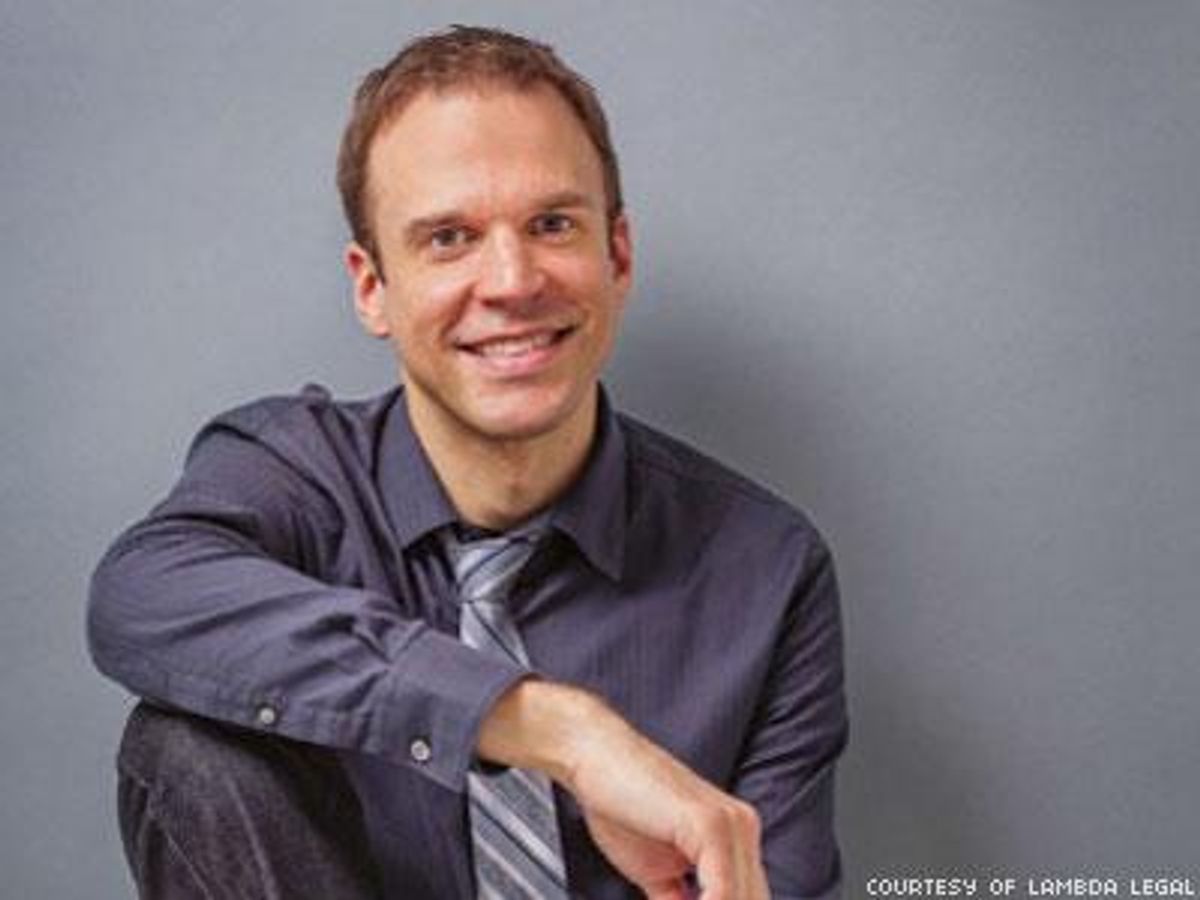The Iowa Supreme Court on Friday overturned a guilty plea and conviction for Nick Rhoades. Rhoades entered a plea of guilty in 2009 for violating the state's HIV-specific law, but the court said his one time encountered did not meet the necessary elements to prove a crime had been committed.
"Today, we are unable to take judicial notice that an infected individual can transmit HIV when an infected person engages in protected anal sex with another person or unprotected oral sex, regardless of the infected person's viral load," Justice David Wiggins, writing for the majority of the court, concluded.
Rhoades met a sexual partner online in June 2008. The two agreed to meet, and had a one time sexual encounter. During the encounter, there was unprotected oral sex and Rhoades performed anal sex on the partner, but used a condom. Rhoades did not disclose his HIV-positive status at the time. Rhoades was arrested in September 2008, and charged under Iowa's HIV-specific criminal law. On the advice of his counsel, he entered a guilty plea on the charge and was sentenced to 25 years in prison. In 2010, the sentence was suspended and he was placed on five years probation and 10 years on the state's sex offender registry. The latter required, among other restrictions, that his sex partners be approved by his probation officer in advance and his contact with children, even his relatives, be limited.
Iowa just modernized its law, and removed those convicted under the previous law from the sex offender registry effective July 1. Rhoades had his GPS monitoring bracelet removed in a ceremony last week in Iowa during the Grinnell Gathering, HIV is not a crime conference.
Lambda Legal, working with local counsel Joseph Glazebrook and Dan L. Johnston, challenged Rhoades conviction in a post-conviction action.
"We applaud the Court for applying the law in light of current medical understanding of how HIV is and is not transmitted," said Christopher Clark, counsel for Lambda Legal who handled Rhoades case. "An individual who takes precautions to prevent transmission should not be considered a criminal for choosing to be sexually active, and we are very pleased that the Court agrees."
Sean Strub, executive director of Sero Project — an advocacy group which fights for the repeal of HIV-specific criminal laws — praised the ruling.
"This is a victory for human rights, defenders of justice and people with HIV everywhere," Strub said. "Sero is proud to have worked with Nick Rhoades for the last few years. Let this message from the Iowa Supreme Court go forth to all the states and jurisdictions around the world that wrongfully use HIV status in criminal prosecutions and encourage them to reform their statutes and prosecutorial policies."
Strub tempered his praise, however, noting the story of Kerry Thomas, who is currently serving a 30-year sentence in Idaho for failing to disclose his HIV-positive status to sexual partner, even though he used a condom, had an undetectable viral load, and the virus was not transmitted.
















































































